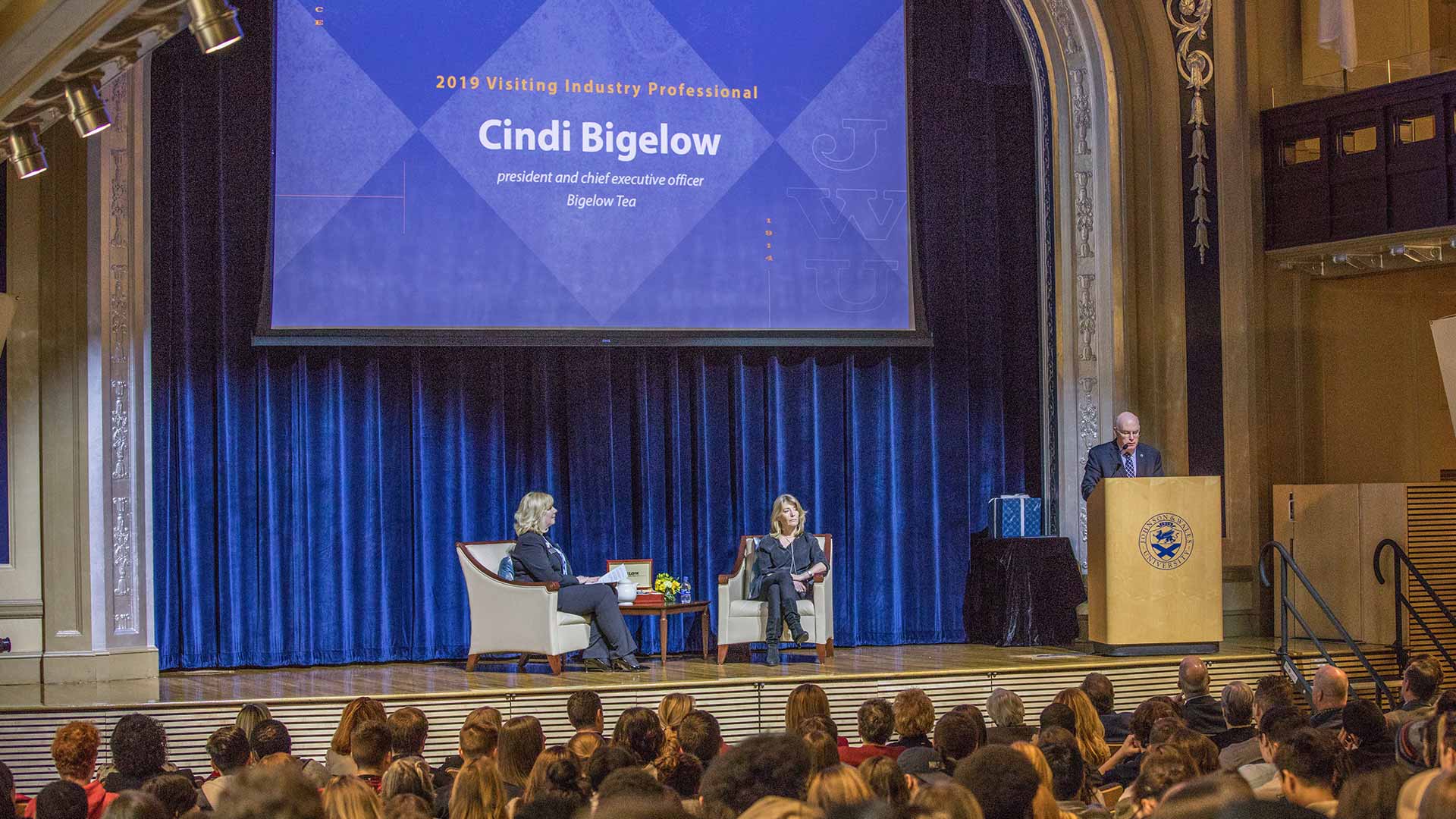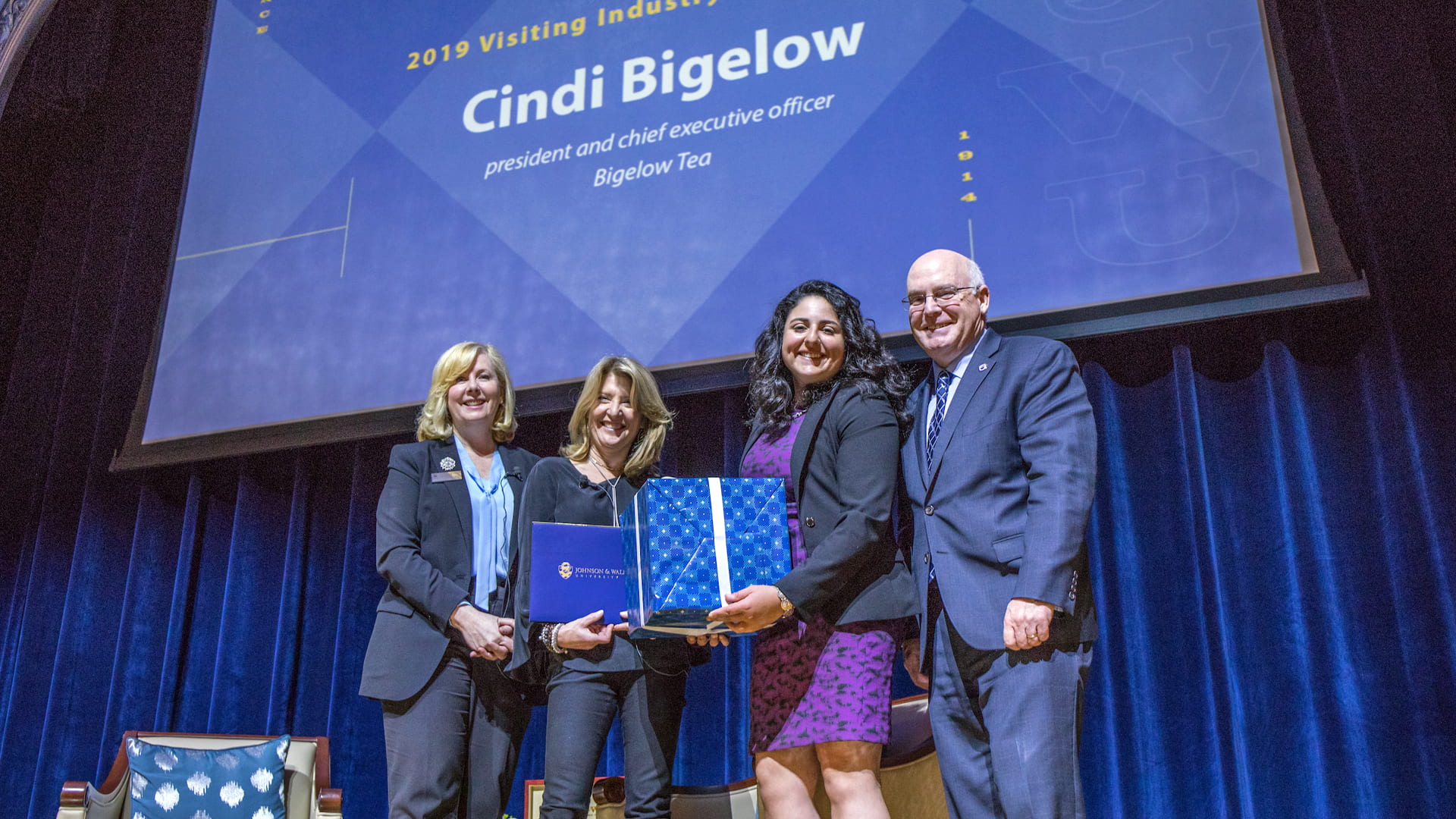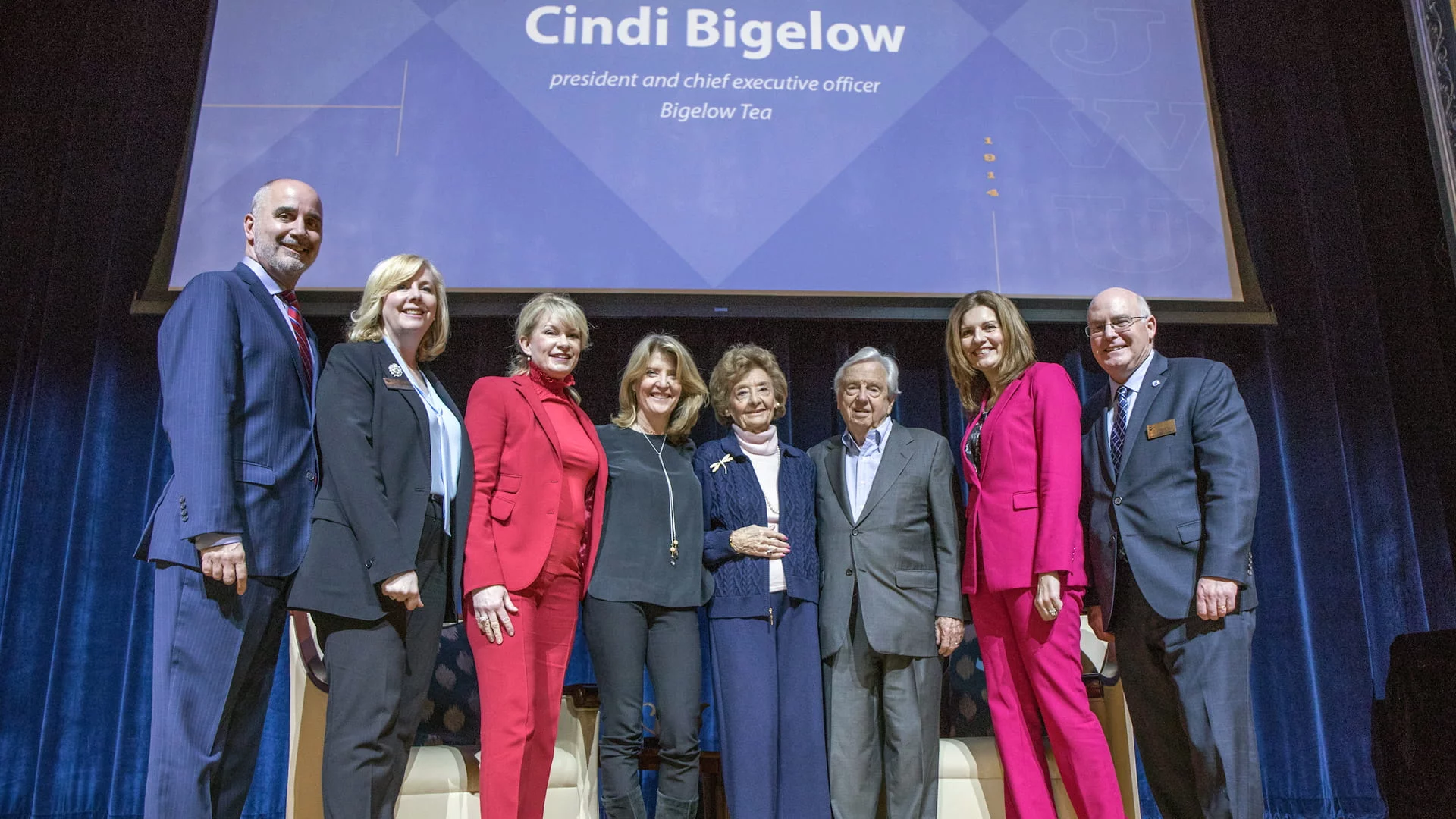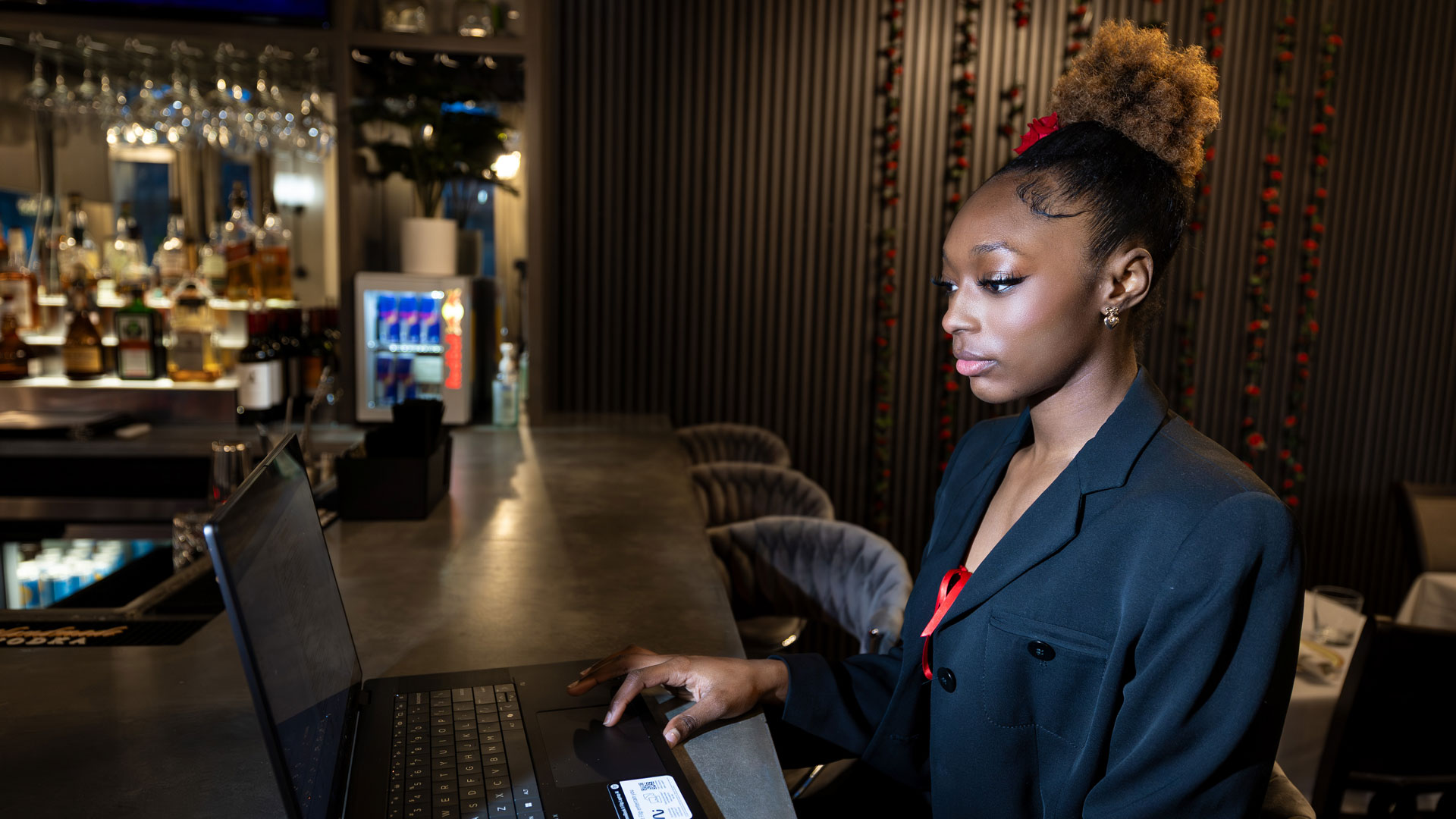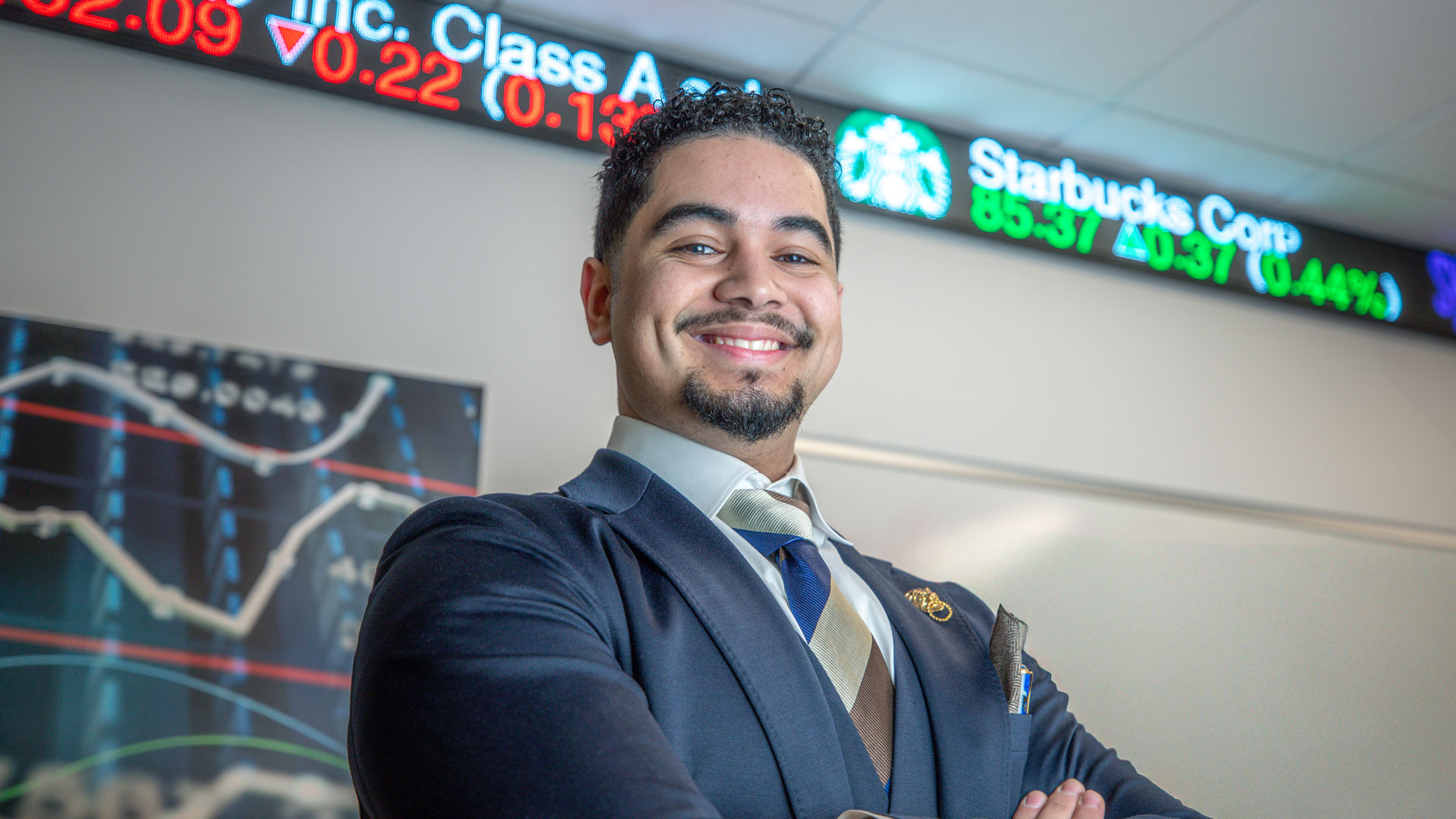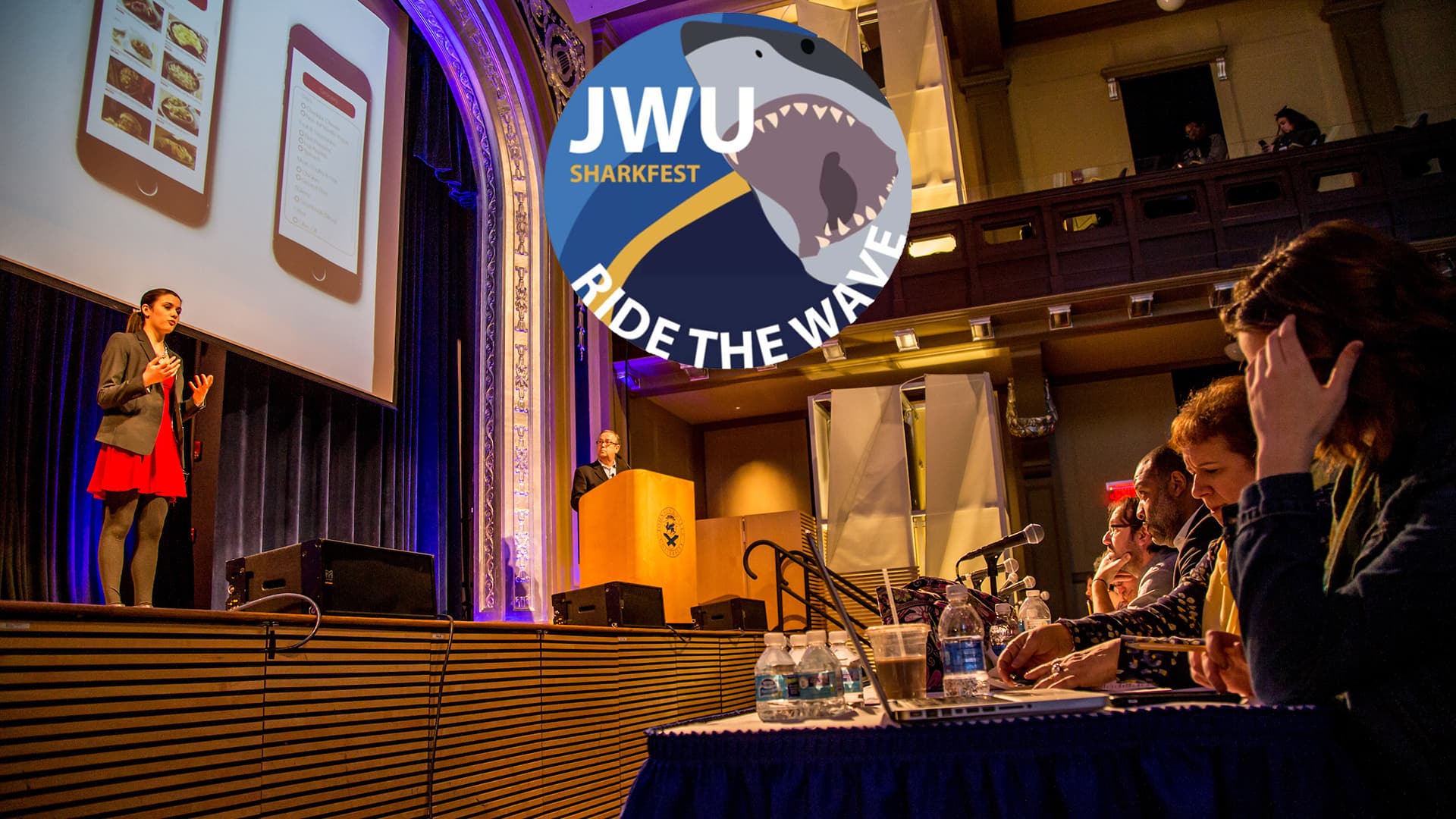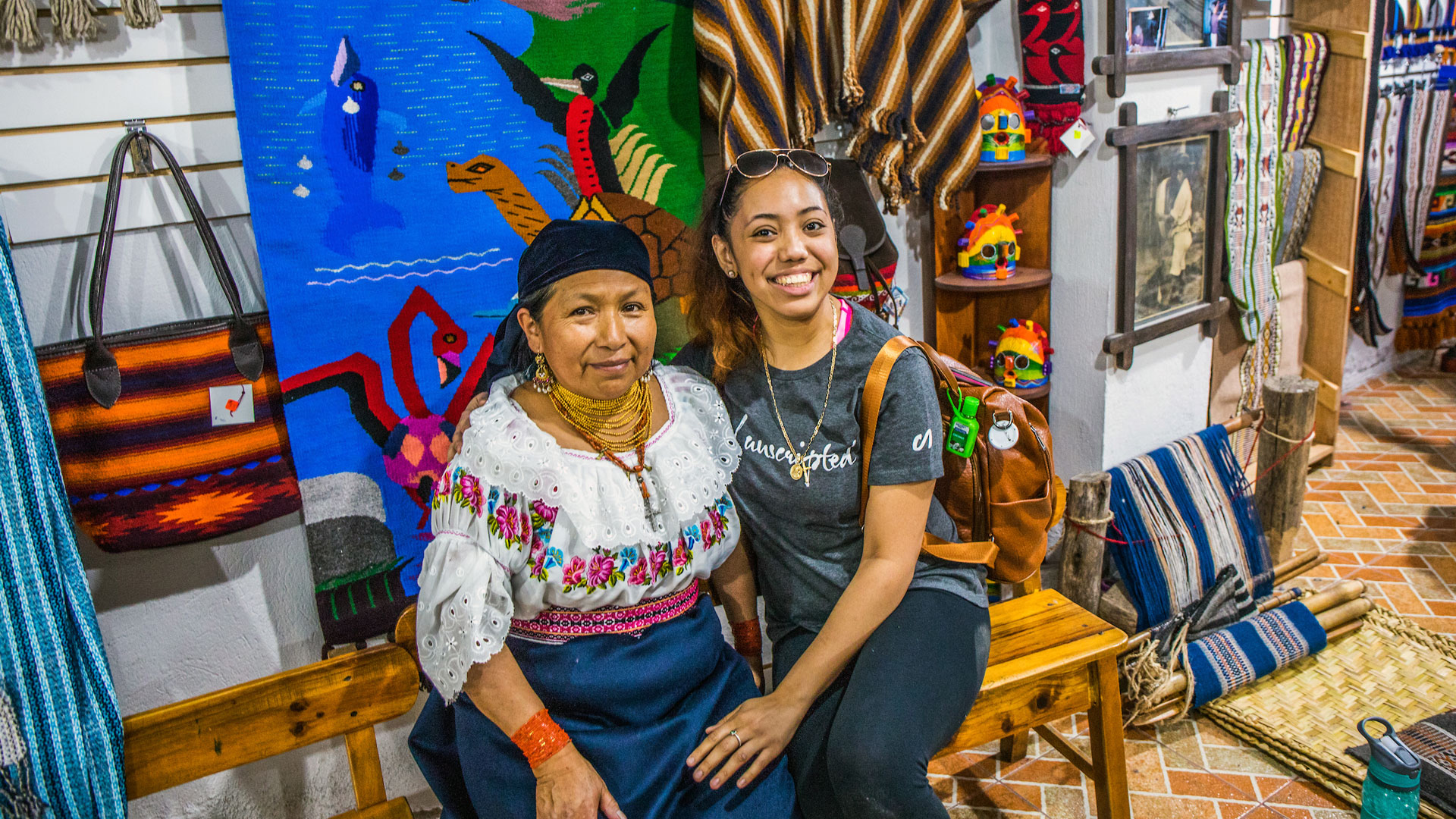Life Lessons in Leadership from Bigelow Tea’s Cindi Bigelow
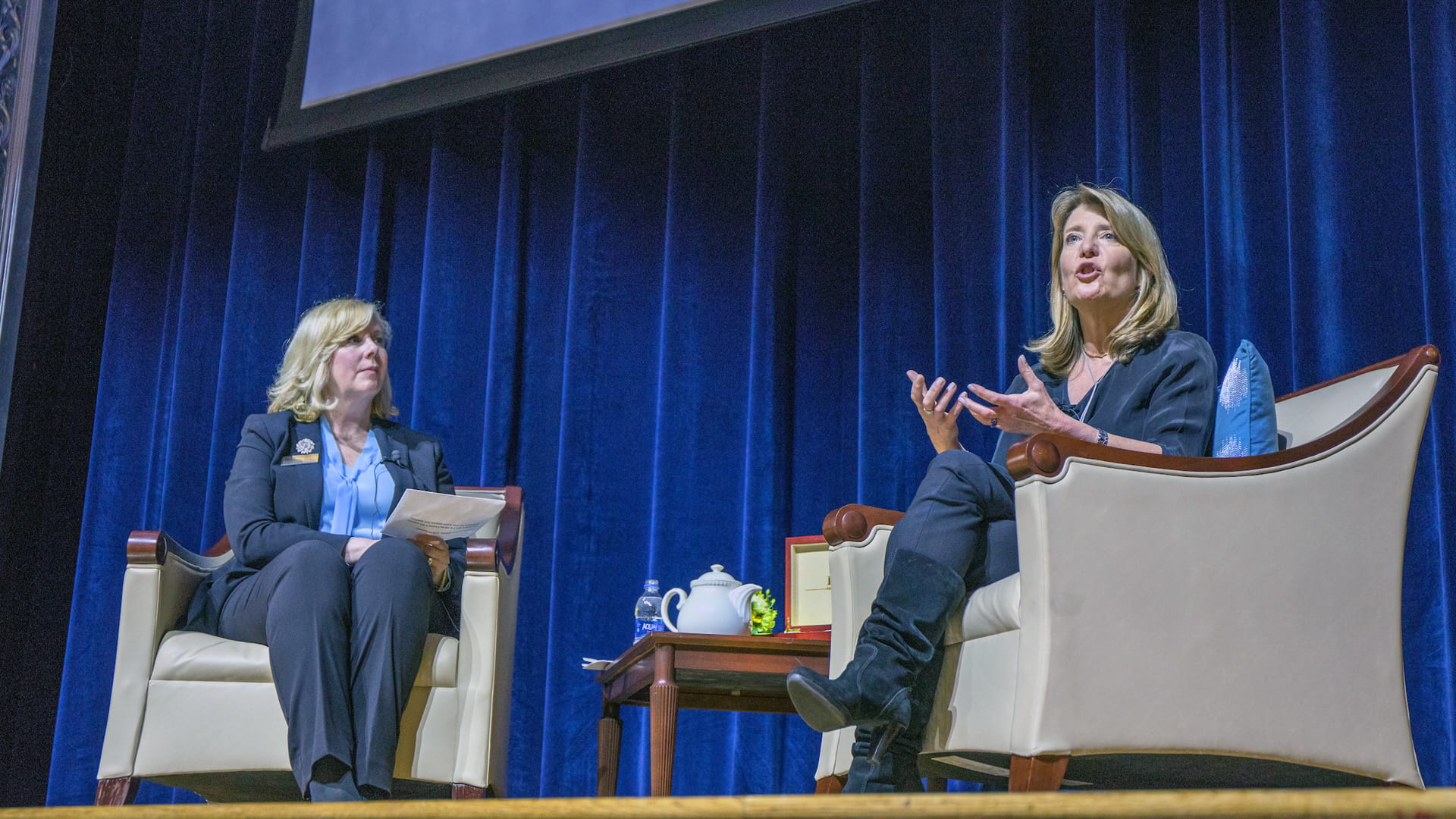
Self-reflection was a huge theme of Cindi Bigelow’s recent visit to JWU’s Providence Campus. As the inaugural speaker of the university’s Visiting Industry Professional (VIP) Speaker Series, Bigelow Tea’s president and CEO was happy to share her accrued experience and wisdom — but she was quick to emphasize that leadership is not about ego.
Chatting with Maureen Dumas, Ed.D., vice president of Experiential Education & Career Services, Bigelow was candid about some of the major career challenges that helped make her a better leader. With her parents, David and Eunice, in the audience, she told students, “Don’t ever forget that you are a role model for those around you, whether you realize it or not.”
Dumas mentioned the statistic that less than one-third of family businesses survive the transition from the first to the second generation, with only 50% surviving between the second and third. “And here you are, the third generation to lead the company — what allows Bigelow to thrive?” (Cindi’s grandmother Ruth Campbell Bigelow founded the company in 1945, and it has been family-run ever since.)
“It’s hard,” she replied. “But I think we were able to do it because we’re very much focused on mission over self. When self gets in front of mission, it’s a real issue.” When she took the helm, her biggest challenge was not being afraid to have “richer conversations” (no matter how difficult) to help everyone, including her parents, navigate to the other side of that transition.
"Obstacles are coming, every single day. How you handle them will define who you are as a person."
But that doesn’t mean there haven’t been bumps in the road. She shared an anecdote about a companywide survey she circulated early in her tenure as CEO, when she was still finding her equilibrium as a leader.
When the surveys came back, 4 employees wrote pointed comments about Bigelow’s management style. “After a few weeks of feeling really bad for myself , I said, ‘OK, this isn’t working. You’re the CEO. Let’s start to do this the right way.’ I had to take the comments, put them into buckets, and recognize some of the factors I could maybe start to work on.” By then, she had some damage control to do, but she rolled up her sleeves and got to work. “It took me 6 months to prove to them that I heard them and was really trying to change. Good, hard communications; good humbling conversations.”
A student asked about the most important qualities a good leader must have. Bigelow thought for a moment before responding: “Every one of you have to find what your best qualities are, and really develop them. And you have to find the qualities that aren’t so good, and you have to develop those, too. And this sounds a little boring, but you have to be a good communicator.”
To Bigelow, every day offers up opportunities to learn: “Obstacles are coming, every single day. How you handle them will define who you are as a person.” Likewise, the seemingly big decisions we take in life — like a new job, or a move to a new city — are often less crucial than the lessons we take to heart. “Whatever you’re doing — yes, it’s important — but it’s almost secondary to who you’re going to become,” she said. “Everything is a building block. It’s a journey of twists and turns, and often you have no idea how they’re going to connect until later on.”
